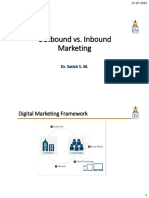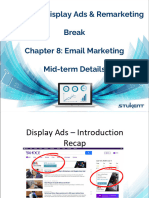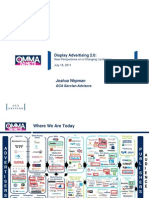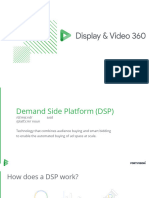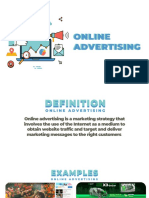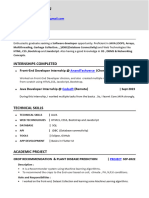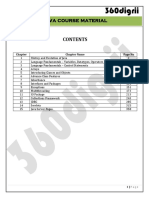0% found this document useful (0 votes)
20 views60 pagesDigital Display
The document provides an overview of digital display advertising, including its history, key terms, benefits, and types of ads. It discusses the digital display advertising ecosystem, the importance of programmatic advertising, and various targeting strategies. Additionally, it highlights the significance of setting objectives and measuring success in display and video campaigns.
Uploaded by
Sampath MudaligeCopyright
© © All Rights Reserved
We take content rights seriously. If you suspect this is your content, claim it here.
Available Formats
Download as PDF, TXT or read online on Scribd
0% found this document useful (0 votes)
20 views60 pagesDigital Display
The document provides an overview of digital display advertising, including its history, key terms, benefits, and types of ads. It discusses the digital display advertising ecosystem, the importance of programmatic advertising, and various targeting strategies. Additionally, it highlights the significance of setting objectives and measuring success in display and video campaigns.
Uploaded by
Sampath MudaligeCopyright
© © All Rights Reserved
We take content rights seriously. If you suspect this is your content, claim it here.
Available Formats
Download as PDF, TXT or read online on Scribd
/ 60


















